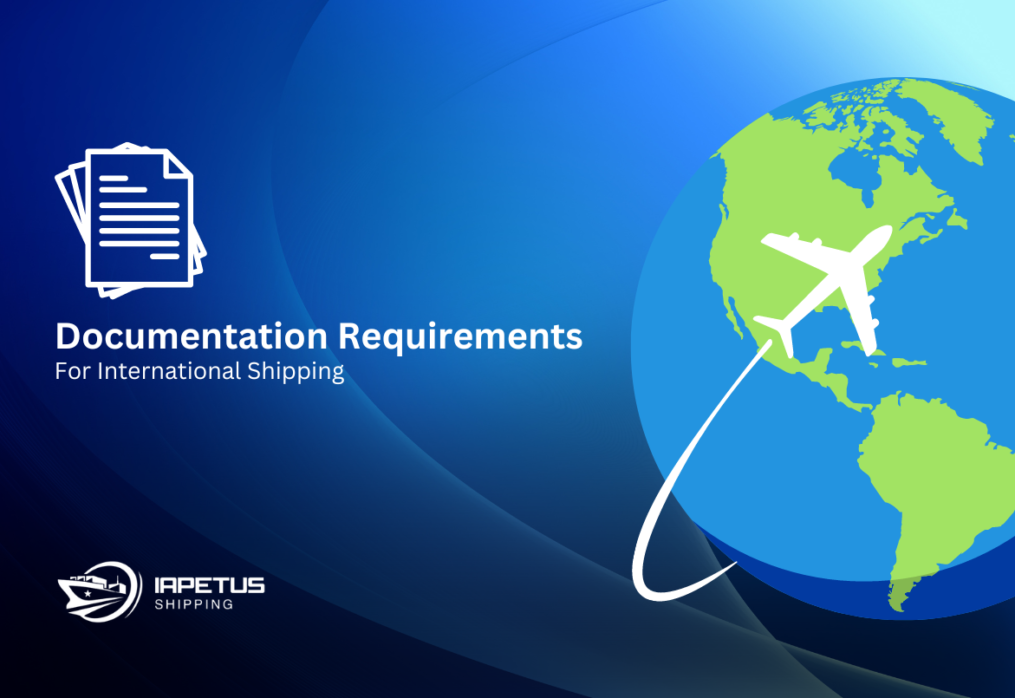Essential Documents Needed while Shipping Cargo Internationally
In today’s interconnected world, shipping cargo internationally has become a vital aspect of global trade. Whether you’re a seasoned importer/exporter or just diving into the world of international logistics, understanding the essential documents required for smooth cargo shipping is paramount. At Iapetus Shipping, we’re committed to simplifying this process for you.
An international shipping.
Let’s explore the key documents you’ll need to ensure hassle-free international shipping.
1. Bill of Lading (B/L):
The Bill of Lading is perhaps the most crucial document in international shipping. It is a contract between the shipper and the carrier, detailing the type, quantity, and destination of the goods being shipped. Additionally, it acts as a receipt of shipment, acknowledging that the carrier has received the cargo in good condition. This document is essential for claiming ownership of the goods upon arrival at the destination port.
2. Commercial Invoice:
The commercial invoice is a legal document issued by the seller to the buyer, providing a detailed breakdown of the goods being shipped, including their value, quantity, and description. This document is essential for customs clearance and is used by customs officials to assess duties and taxes on imported goods. Ensuring the accuracy of the commercial invoice is crucial to avoid delays and disputes during customs clearance.
3. Packing List:
A packing list provides a comprehensive inventory of each package or container being shipped. It includes details such as the number of packages, their dimensions, weight, and contents. This document helps customs officials verify the contents of the shipment and facilitates the efficient handling and sorting of cargo at ports and warehouses.
4. Certificate of Origin:
The certificate of origin is a document that certifies the country in which the goods were manufactured. It determines eligibility for preferential trade agreements, assesses import duties, and complies with customs regulations. Accurately documenting the origin of goods is essential for ensuring compliance with trade agreements and avoiding penalties for misdeclaration.
5. Insurance Certificate:
While not strictly required for customs clearance, an insurance certificate provides proof of insurance coverage for the cargo during transit. Shipping cargo internationally involves various risks, including damage, loss, or theft. Having adequate insurance coverage can provide peace of mind and financial protection against unforeseen events.
6. Import/Export Licenses:
Depending on the nature of the goods being shipped and the countries involved, import/export licenses may be required to facilitate international trade. These licenses are issued by government authorities and regulate the importation and exportation of specific goods, such as controlled substances or restricted items. Ensuring compliance with import/export regulations is essential to avoid legal issues and penalties.
Conclusion:
Navigating the complex landscape of international cargo shipping requires careful attention to detail and thorough documentation. At Iapetus Shipping, we understand the importance of these essential documents and are committed to guiding you through the process with expertise and efficiency.
For a seamless shipping experience, trust Iapetus Shipping to handle all your international cargo needs.
With the right documents in hand, you can navigate the complexities of international cargo shipping with confidence and ease. Reach out to Iapetus Shipping today to streamline your logistics and elevate your global supply chain.
